“We shouldn’t wait for a catastrophe”
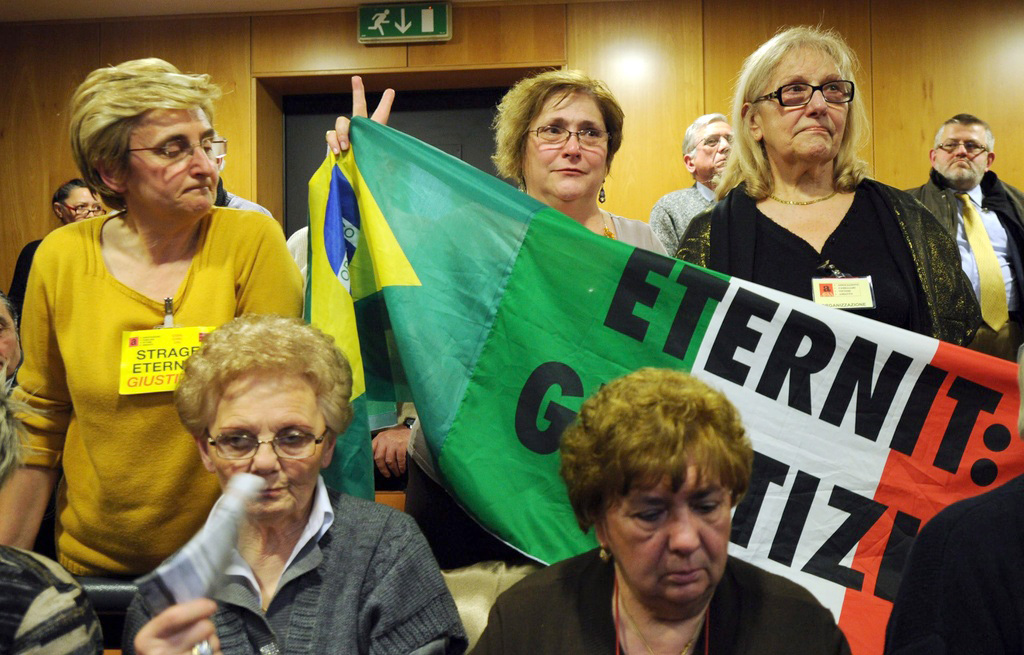
The Turin court case against a Swiss industrialist and his business partner has exposed the truth about the asbestos affair, says a Swiss expert.
François Iselin, who has been following events closely for 30 years, says that the involuntary manslaughter verdict should serve as a warning against the misuse of all cancer-causing products.
The Swiss Stephan Schmidheiny and Belgian Jean-Louis Marie Ghislain de Cartier were the majority shareholders in the Eternit Genova company, which owned four asbestos factories in Italy. They were sentenced on Monday to 16 years in prison, and fined millions of euros in punitive damages.
But the trial is unlikely to mean the end of the Eternit legal saga: there will be an appeal and other court cases are expected soon in Italy.
Iselin, a former professor at the Federal Institute of Technology in Lausanne and expert at the Committee for the Aid and Orientation of Asbestos Victims in Switzerland, says the trial could have been avoided had warnings about asbestos been heeded sooner.
swissinfo.ch: The prosecutor Raffaele Guariniello has called the Turin trial the most important in history for workplace safety. What does it represent to you?
François Iselin: It’s certainly something important, but one has to relativise the verdict a bit. The two accused were convicted over several thousands of victims, but every year there are ten times as many victims around the world. The problems are the same, if not worse, in Brazil, Nicaragua, Spain, France and in many other countries. This trial is only the beginning.
Stephan Schmidheiny may have been judged but only for one of the many areas of his responsibility. His responsibility was in fact much larger because he was at the helm of a multinational which exposed very many people to this substance worldwide.
swissinfo.ch: What are the lessons to be learned?
F.I.: I don’t think we should have any more of these trials. On the one hand, the sentence won’t bring back the dead, on the other, the trial could have been avoided.
Scientists had started publishing studies showing that this substance was harmful from the 1950s and 1960s. But this research made no impact – not because it was controversial but because the knowledge transfer between scientists, prevention institutes, unions and political authorities did not work.
Today there are thousands of products with a cancer risk. I’m thinking of mobile phone radiation and nanoparticles… There are very serious reports on many industrial products. We should act as soon as we have suspicions and not wait for a catastrophe.
swissinfo.ch: Does this verdict serve as a warning to those industrialists who don’t do enough to guarantee workers’ and citizens’ safety?
F.I.: The reason that many industrialists are prepared to take huge risks, especially with carcinogenic products, is that the latency period is sufficiently long.
Schmidheiny himself waited too long. If he had stopped asbestos when he took over Eternit in Switzerland [in 1975], the scale of the disaster would have been smaller. Instead he stubbornly decided to keep on with this substance until it was no longer profitable. He even said ‘we’re stopping because asbestos no longer makes a profit’.
But from the beginning of the 1960s the authorities, unions etc. should have said: ‘enough, asbestos is too dangerous, we know it is carcinogenic with a potential for many victims’. Instead its use was continued for many years.
swissinfo.ch: The 16-year sentences, a long compensation list… did you expect this?
F.I.: No, I was very pessimistic. Schmidheiny enjoys a lot of support in diplomatic and financial circles and has great prestige in Switzerland. He is quite renowned in the so-called green capitalism sector.
But even with just one month of prison, this prestige starts to crumble. It will be problematic for all the firms he has founded and also for Switzerland. How could the federal authorities allow this person to keep going when Switzerland was one of the first countries to use asbestos cement and therefore had a lot of experience of the risks associated with working with this material? Why didn’t Switzerland intervene straightaway, saying, ‘You are playing with fire, dear Mr Schmidheiny’?
swissinfo.ch: The two accused never appeared in person at the trial and now there will be appeals. Do you think Schmidheiny will ever end up in prison?
F.I.: I don’t think this is a central point. The main thing is this trial allowed the truth to surface.
I don’t know if he will one day be extradited from Switzerland or Costa Rica, where he lives for much of the year. His problem will be that he won’t be able to travel very easily, which will be a disaster for someone like him.
swissinfo.ch: In 2008 the Swiss federal court threw out three legal charges against, among others Stephan and Thomas Schmidheiny, because the statute of limitations had passed. Will there be new legal proceedings now in Switzerland?
F.I.: Yes, this Italian verdict will perhaps open the floodgates. But for this type of case, the ten-year statute of limitations is absurd. There is a good chance that the Human Rights Court in Strasbourg will admit the appeal against the [Swiss] verdict.
There’s now a second Eternit trial starting in Turin, which could really harm Switzerland because it concerns Italian emigrants who became ill in Swiss Eternit plants and which implicates, among others, [Swiss occupational health insurer] Suva.
It’s necessary to know what’s going on in Switzerland but I’m a bit more pessimistic about it. The Turin trial was won because civil parties were mobilised. There are people who came to Turin for all 66 hearings, who gave testimony, who looked for proof… I don’t really see any similar pressure groups in Switzerland. There wasn’t even a single Unia union representative or politician in Turin.
The Turin court will soon start more proceedings on the Eternit affair. This concerns people who became ill after the preliminary hearings – April 6, 2009 – of the trial that finished on Monday. This is around 180 people, according to a victims’ representative.
It will also look at Italian immigrants exposed to asbestos in Swiss Eternit plants. In October 2007 the Federal Justice Office authorised the transfer to the Turin prosecutor of Suva dossiers pertaining to 196 workers in the Payerne plant in canton Vaud and the Niederurnen plant in canton Glarus.
The Turin prosecutor Raffaele Guariniello confirmed the two proceedings to the Swiss News Agency and said that he might also be coming to Switzerland as part of the investigation.
(Translated from Italian by Isobel Leybold-Johnson)

In compliance with the JTI standards
More: SWI swissinfo.ch certified by the Journalism Trust Initiative
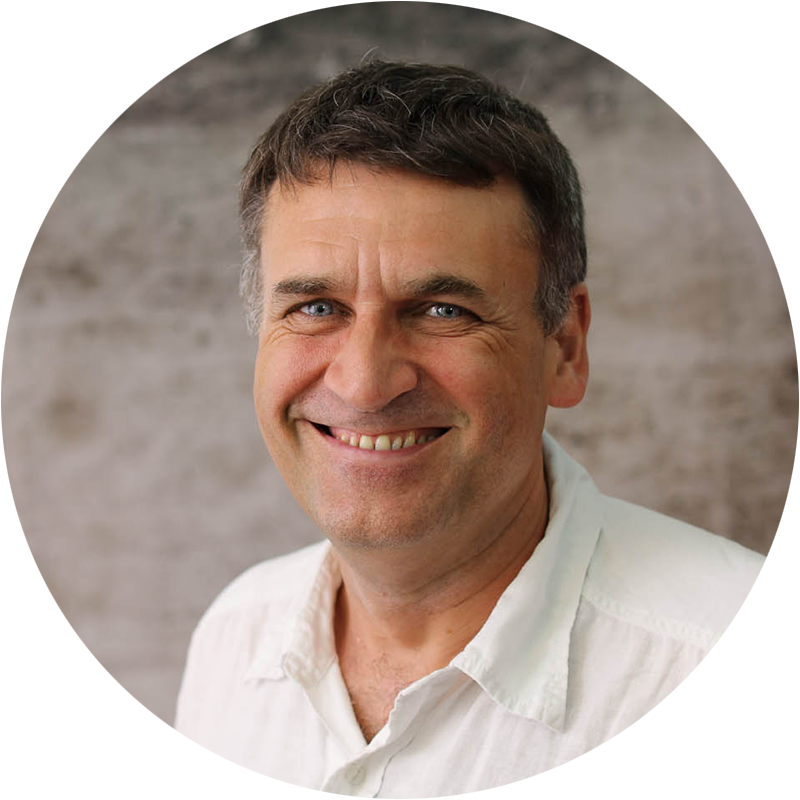
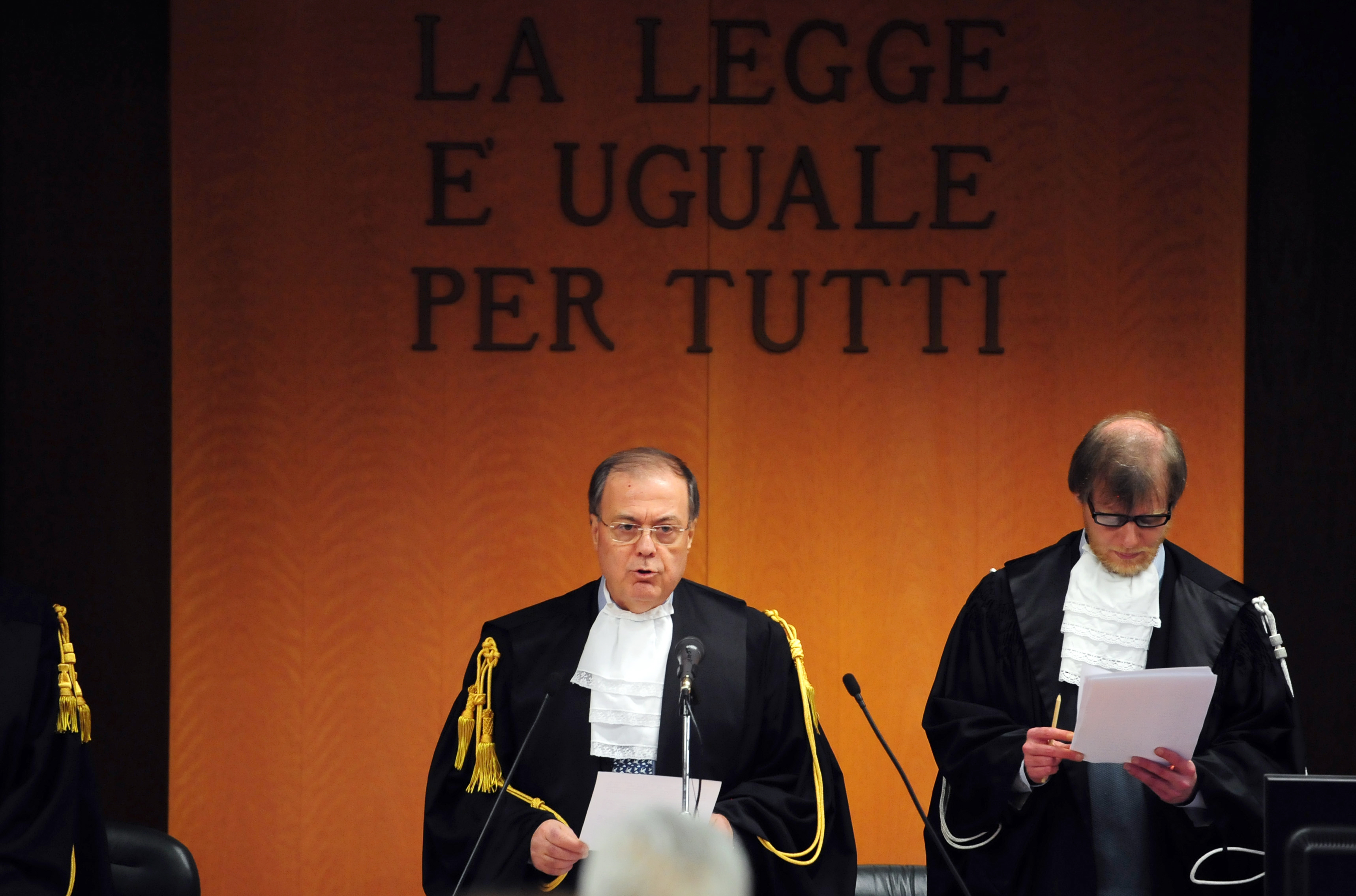
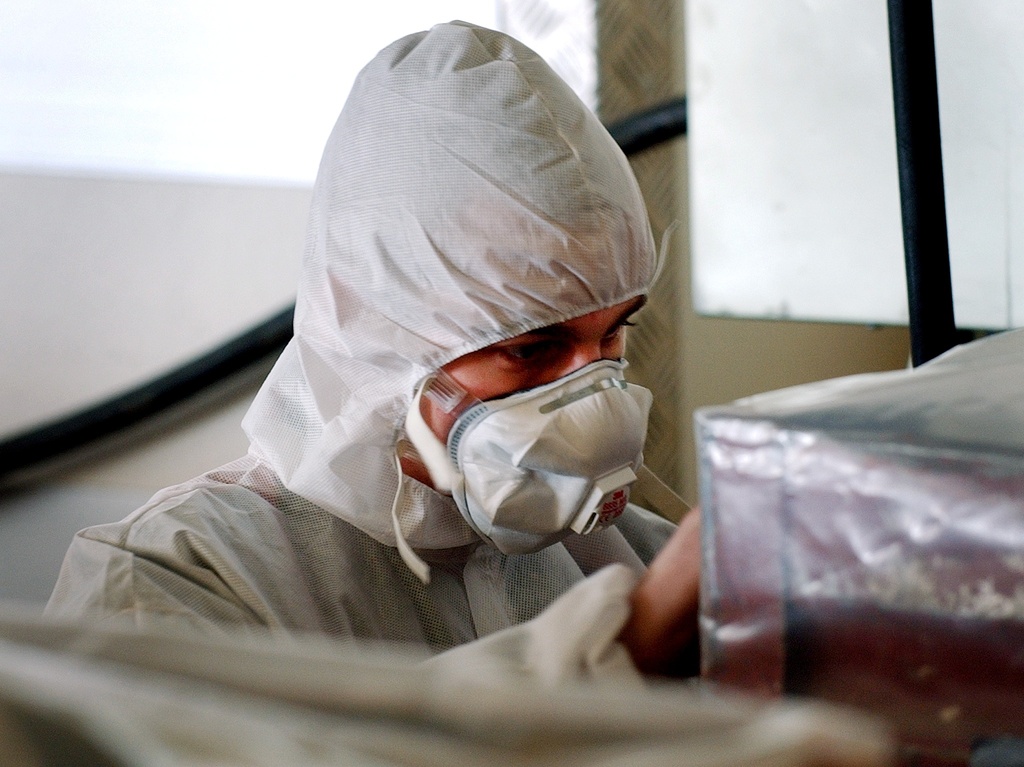
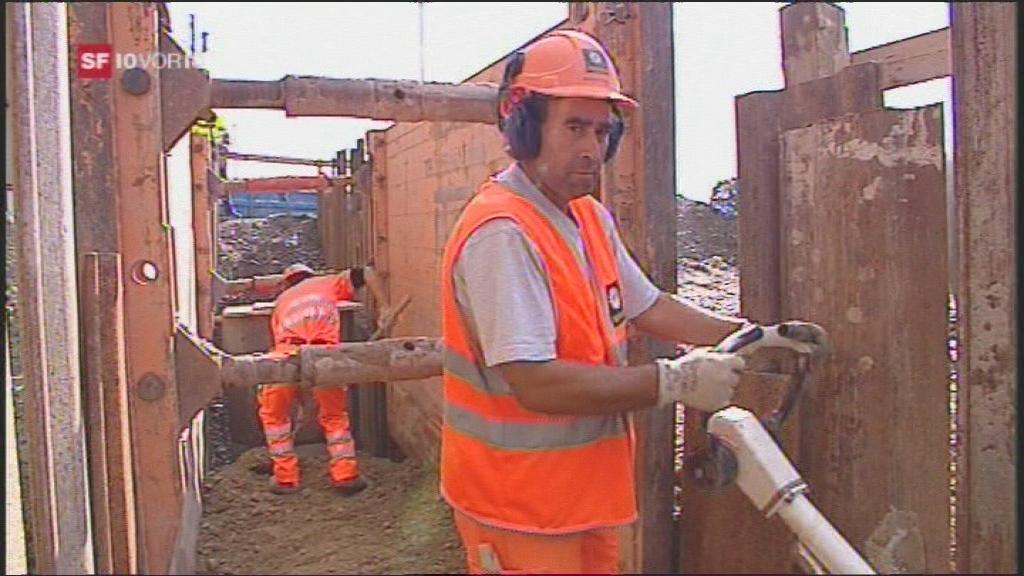
You can find an overview of ongoing debates with our journalists here. Please join us!
If you want to start a conversation about a topic raised in this article or want to report factual errors, email us at english@swissinfo.ch.